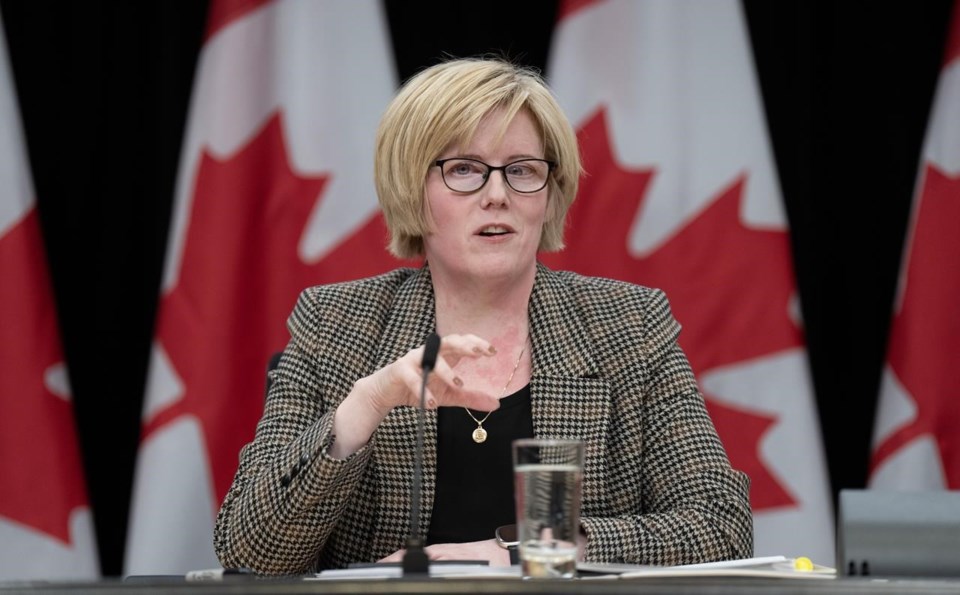The Office of the Sport Integrity Commissioner and its Abuse-Free Sports Program will be absorbed by the Canadian Centre For Ethics in Sport by next year.
OSIC was created in 2022 as a division of the Sport Dispute Resolution Centre of Canada amid a wave of complaints about abuse and harassment in Canadian sport.
OSIC's job was to administer the Universal Code of Conduct to Prevent and Address Maltreatment in Sport (UCCMS).
Decoupling OSIC from the SDRCC "to ensure greater independence" was among a suite of safe-sport measures announced in December by federal sports minister Carla Qualtrough.
Her office said in a statement Thursday that the Canadian Centre For Ethics in Sports will be the administrator of the UCCMS as of April 1, 2025.
Qualtrough also posted the statement on X, formerly known as Twitter.
Her office did not respond to questions Thursday about what that transition means for OSIC or how the move ensures greater independence.
But OSIC's role was clearly diminished. OSIC said on its website its next round of complaint and report statistics will be issued in the SDRCC's annual report.
"The administration of the UCCMS through the Program remains under the authority of the SDRCC until March 31, 2025," said the statement from Qualtrough's office.
The Canadian Centre for Ethics in Sport (CCES) is the country's doping watchdog that tests athletes in both domestic competition and international events in Canada.
The monitoring of competition manipulation around sports betting is also in its mandate.
“Having an organization in Canada focused on the broad array of threats to the integrity of our sport system, including maltreatment and abuse, addresses a systemic gap and reflects an international best practice," Minister Qualtrough said in the statement.
"I firmly believe that this transition to a future Sport Integrity Canada is an opportunity to build up and enhance the administration of the UCCMS through the Program and to better support those seeking out its services."
The CCES will expand its role to all aspects of sport integrity, the statement said.
“Canada needs a centralized approach to address sport integrity issues that will create alignment within the Canadian sport system and builds the confidence of athletes, sport organizations, governments, and the Canadian public," said CCES president and CEO Jeremy Luke in that statement.
"Over the coming months, as we transition this work into the CCES, we will evolve as an organization into a broader sport integrity agency to ensure we have the appropriate mandate, governance structure and expertise to manage safe sport, anti-doping, competition manipulation and other emerging threats to sport integrity, while continuing to promote a values-based prevention approach.”
OSIC, created by Qualtrough's predecessor Pascale St-Onge, was designed to take the complaint and investigation process away from national sport organizations.
All sport bodies that received federal funding had to be signatories by April 2023 lest they lost that funding.
The 2022 federal budget provided $16 million to fund the office over its first three years of operations.
OSIC began hearing complaints June 20, 2022, but its jurisdiction was limited early until sport bodies became signatories.
As of March 31, 2024, it had received 395 complaints and reports since it opened, with 176 deemed admissible or pending admissible for a 44 per cent intake.
Its first commissioner Sarah-Eve Pelletier stepped down earlier this year after 18 months with Andre Lepage serving as interim commissioner.
One of OSIC's jobs was to maintain a registry of people sanctioned or under investigation in the sport system, and it made that registry public last month.
This report by The Canadian Press was first published May 2, 2024.
Donna Spencer, The Canadian Press




